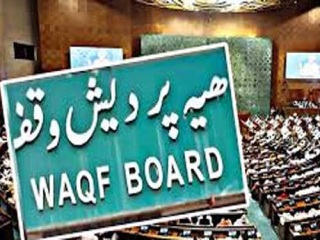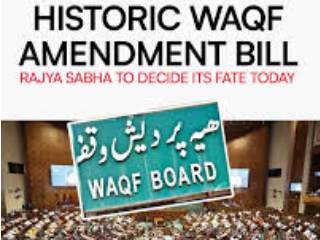
Mr Anand Ranganathan is an Indian Scientist and Author. He completed his education at the St. Stephen’s College, Delhi, and the University of Cambridge. In addition to his academic work, he is known for his political analysis and has written several Books. He frequently contributes to various Publications and serves as the Consulting Editor of ‘Swarajya’.
‘Hindus in Hindu Rashtra’ is essential reading for every conscientious follower of the Dharmic path. Disregard it at your own risk, especially if you are concerned about the survival of your civilization.
Even those acquainted with Dr Anand Ranganathan’s rapid-fire 30-second articulations should not assume they have heard it all or know it all. While you may have encountered fragments of his ideas in various discussions on television and on X (earlier Twitter), this succinctly written, compact book provides a faster route to connect the dots and present a broader and deeper perspective for those who really want to understand the religious, political, and demographic dynamic in ‘secular’ India.
Ruthlessly blunt, fearless, sharp, and incisive – these adjectives precisely describe Dr Anand Ranganathan and his take on Indian affairs. Known for his 30-second verbal blitzkriegs, Ranganathan, as revealed in his numerous television appearances and public events, transcends his self-professed Darwinian atheism to become a formidable advocate for Bharat’s soul – the Hindu civilization and its historical legacy. His ability to rise above the constraints of his challenging institutional environment (Jawaharlal Nehru University) and resist the temptations of protecting and padding the ‘self’ distinguishes him as an inspiring, energetic, and engaging intellectual giant.
This commitment to unvarnished truth resonates strongly in his latest bestseller, ‘Hindus in Hindu Rashtra.’ For those who have followed Dr Ranganathan in recent years, the book represents the culmination of several themes articulated across various public and media platforms.
Dr Ranganathan contends that the stage was set for discrimination against Hindus long before Independence, tracing it back to Mahatma Gandhi’s influence in the 1910s. Minority appeasement began on an unprecedented scale, with many of Gandhi’s appeals lacking a sense of reality and bordering on the absurd.
While advocating that Hindus should not harbor anger against Muslims, even if the latter sought their destruction, Gandhi’s approach seemed detached from reality and practicality. Every instance of appeasement emboldened minority leaders and political fronts for further extortion and blackmail. Consequently, discrimination became ingrained in the Nation’s DNA when independent India emerged in 1947.
The discrimination against Hindus or the apartheid clauses and rules evident in our Constitution, policies, legal framework, and society relegate Hindus not only to second-class but what Dr Ranganathan says, ‘eighth-class citizens’. The subsequent chapters in the book provide the evidence supporting this assertion.
In this thought-provoking and unapologetic book, Dr Ranganathan dismantles the prevailing narrative that Hindus in India live in a utopian Hindu Rashtra, arguing instead that they have been systematically reduced to ‘eighth-class citizens’, victims of a form of state-sanctioned ‘apartheid’. Through eight meticulously crafted chapters, Dr Ranganathan addresses key issues that have plagued the Hindu community, backed by references and a compelling narrative that leaves the reader with a mix of emotions – sadness, fury, shock, and fear.
The book opens with a sharp challenge to those who claim that India is a ‘fascist Hindu Rashtra’, questioning the paradox of a Hindu-majority Nation where Hindus are treated as second-class citizens. Dr Ranganathan deftly navigates through topics such as the state control of Hindu temples, injustice towards Kashmiri Hindus, the impact of the Waqf Act of 1995, the discriminatory effects of the Right to Education Act, and legislative enactments that appease non-Hindus while targeting Hindus.
The book criticizes individuals who profess to advocate for Hindu causes but end up perpetuating the religious discrimination embedded in our supposedly ‘liberal’ Constitution, various laws, judicial rulings, and every day ‘secular’ discussions.
Dr Ranganathan clarifies the use of the term ‘apartheid,’ emphasizing that it extends beyond the appeasement of ‘minorities’. In the prologue, he asserts, ‘No, the issue … is not appeasement. The issue is apartheid. The problem involves state-sponsored, state-sanctioned discrimination against a specific community. And that community is the majority community – the Hindus’.
The eight chapters probe five laws that unfairly discriminate against Hindus, along with three additional supporting elements contributing to this discrimination.
The five laws constituting ‘apartheid’, as identified by Dr Ranganathan, include those enabling state control over temples (exclusively temples), the Waqf Act granting extraordinary powers to Waqf Boards to claim and seize properties associated with the Waqf (with limited legal remedies), the Right to Education Act (imposing obligations solely on majority institutions), and the Places of Worship Act hindering Hindus from reclaiming temples forcibly demolished and built over by Islamist rulers, often using the same building materials.
One of the most compelling arguments presented is the issue of state control over Hindu temples. Dr Ranganathan meticulously illustrates how successive Governments, irrespective of their political ideologies, have systematically controlled thousands of Hindu temples and their properties. He highlights the encroachment on temple lands, misappropriation of funds, and the appointment of non-Hindus to temple boards, all contributing to the exploitation of Hindus and their religious beliefs.
The plight of Kashmiri Hindus is poignantly discussed, bringing to light the brutal genocide they faced and the subsequent neglect and lack of justice. The book challenges the collective amnesia surrounding this tragic chapter in Indian history and emphasizes the importance of acknowledging and rectifying the injustices suffered by Kashmiri Hindus.
The Waqf Act of 1995 is scrutinized for the unparalleled power it gives to the Waqf Board, allowing them to lay claim to any property, including Government properties. Dr Ranganathan presents compelling examples, such as the Waqf Board claiming Mukesh Ambani’s property, to underscore the far-reaching consequences of this act on ordinary citizens.
The Right to Education Act portrayed as a tool for social justice, is exposed for its discriminatory impact on Hindu-owned institutions. The Right of Children to Free and Compulsory Education (RTE) Act, 2009, through the Eighty-sixth Amendment Act, 2002 inserted Article 21-A in the Constitution of India to provide free and compulsory education for all children in the age group of six to fourteen years as a Fundamental Right. Dr Ranganathan argues that the Act, by imposing onerous restrictions on Hindu schools, has led to the closure of thousands of institutions, while the so-called ‘minority institutions’ (Christian, Muslim, etc.) enjoy exemptions, enabling them to propagate their religious beliefs freely. Maybe there is no other country in the world that offers ‘minorities’ the recognition and ‘first-class’ status that India offers.
The book further delves into legislative enactments that selectively target Hindu religious practices, emphasizing the judiciary’s bias in reforming only Hindu traditions while maintaining a conspicuous silence on practices of other religions. The Places of Worship Act of 1991, which denies Hindus the right to reclaim historical temples, and the Waqf Act of 1995, which gives overarching powers to Muslims over Hindu temples, are dissected to highlight the erosion of Hindu heritage.
The book explores the glorification of historical figures responsible for large-scale Hindu genocides, questioning the fabrication of history taught in Indian schools. The fact that the Muslim and Christian marauders (Aurangzeb, Bakhtiyar, Babur, Francis Xavier, Sikandar Shah Miri, Tipu Sultan, Khwaja Moinuddin Chisti, etc.) are still glorified and celebrated in school textbooks and events across the country says a lot about what’s wrong with our system and some people.
The narrative skillfully weaves through historical examples, legal intricacies, and contemporary issues, creating a compelling case for the need to reevaluate the treatment of Hindus in their own land. This book dives into how Hindus, who have been in Bharat for millennia, are now discriminated against on their own turf. The book breaks down the struggles over the past 100 years, showing how things went from bad to worse. It is a wake-up call to keep the diversity we once celebrated intact and ensure that Hindus, celebrants of plurality and diversity, do not become victims to supremacists, monopolists, and violent faiths masquerading as liberal and universal.
Dr Anand Ranganathan’s ‘Hindus in Hindu Rashtra’ is a tour de force, a compelling exposé that confronts readers with uncomfortable truths about the systemic discrimination faced by Hindus in contemporary India. The author’s bold and unapologetic style, coupled with meticulous research, makes this book an indispensable read for anyone seeking a nuanced understanding of the challenges Hindus encounter in their own homeland. As a call to action, Dr Ranganathan urges Hindus to unite in solidarity, emphasizing the need to awaken from a complacent slumber and demand justice. He challenges prevailing narratives, demands introspection, and advocates for a reawakening among Hindus to protect their cultural and religious heritage.
As J Sai Deepak aptly indicates in the foreword, this book will act as a portal to the vast terrain of deeper understanding leading to potential remedial actions from every part of society. To get started, it is time to get ‘awakened, re-awakened’. Dr Anand Ranganathan has done his part as an author. Now, it is our turn as readers.
– Ms Deeksha Tyagi
(Student at Miranda House, University of Delhi, pursuing a BA (Hons.) in History)
(Courtesy : Excerpts from an Article published under the same title in : indiafacts.org.in)
This is a compelling exposé that confronts readers about the systemic discrimination faced by Hindus in contemporary India !

 President Murmu approves ‘Waqf Amendment Bill’
President Murmu approves ‘Waqf Amendment Bill’ Withdraw ‘Waqf Bill’ else there will be protests : Threatens Jamiat Ulema-e-Hind’s Mufti Mohammad Akbar Qasmi
Withdraw ‘Waqf Bill’ else there will be protests : Threatens Jamiat Ulema-e-Hind’s Mufti Mohammad Akbar Qasmi Raza Academy threatens to take to the streets over the Waqf Amendment Bill
Raza Academy threatens to take to the streets over the Waqf Amendment Bill Waqf (Amendment) Bill passed in Rajya Sabha at 2.30 a.m.
Waqf (Amendment) Bill passed in Rajya Sabha at 2.30 a.m. The State Govt will return the farmers and the Devasthans the land forcibly grabbed by the Waqf Board
The State Govt will return the farmers and the Devasthans the land forcibly grabbed by the Waqf Board Debate on ‘Waqf (Amendment) Bill’ continued till late night even in ‘Rajya Sabha’
Debate on ‘Waqf (Amendment) Bill’ continued till late night even in ‘Rajya Sabha’